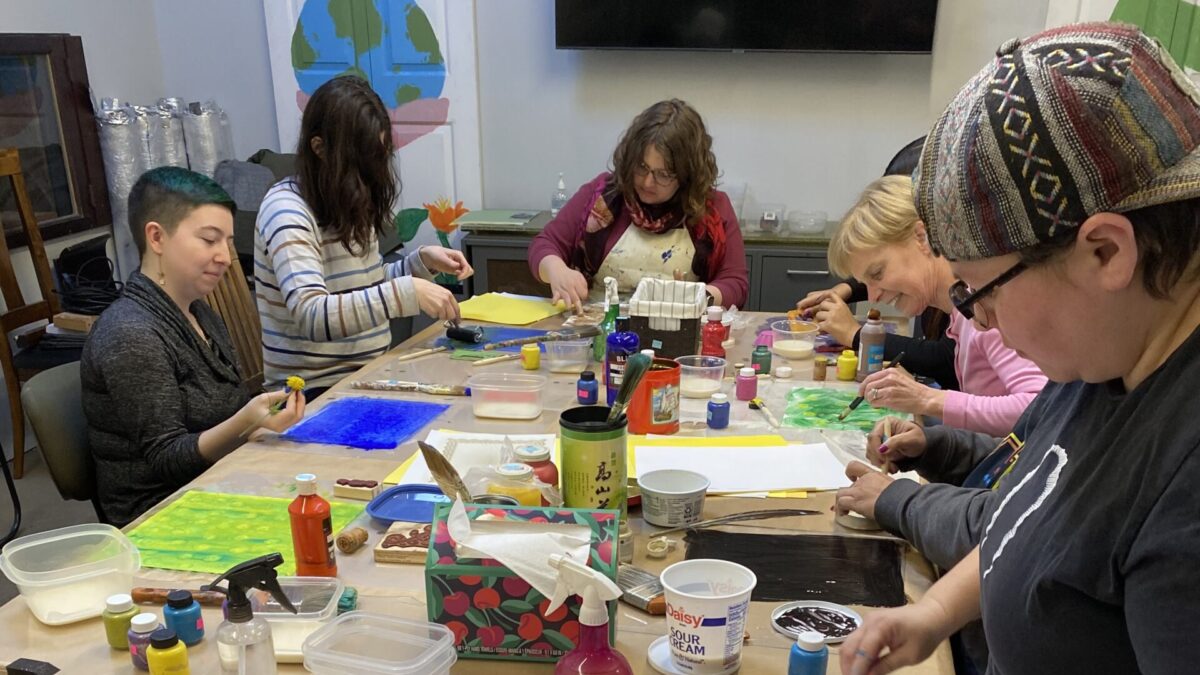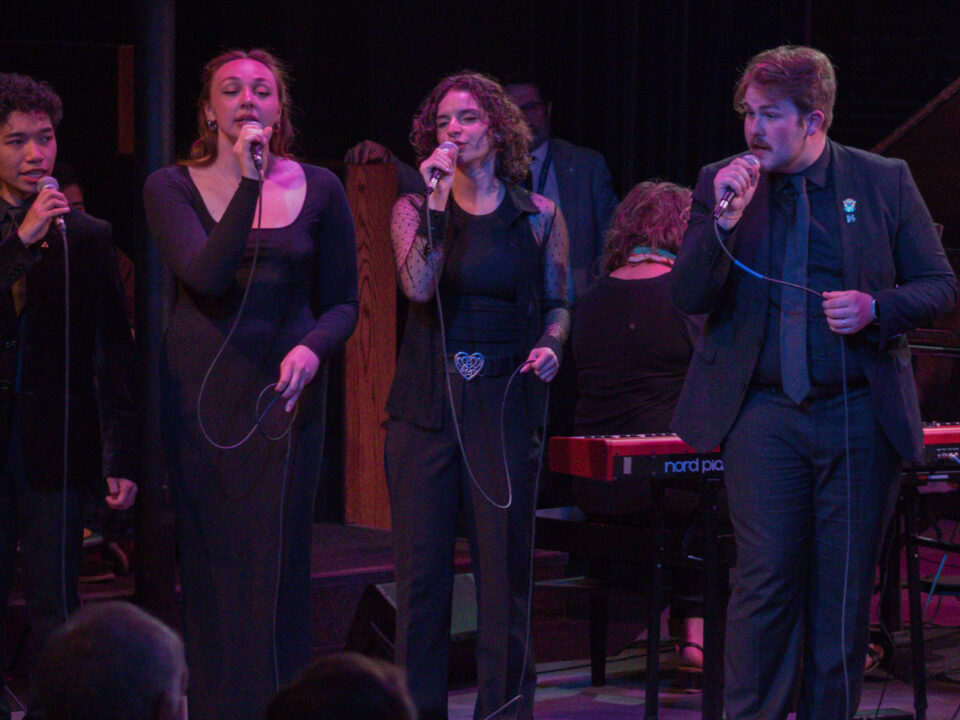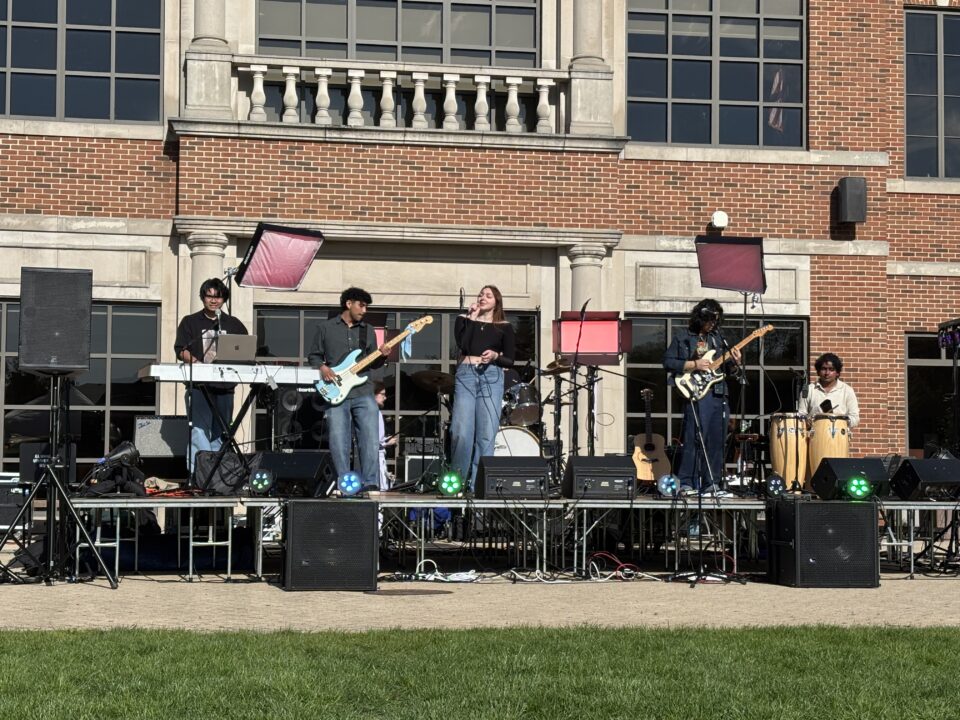One Pair Of Jeans Vs. A World Of Waste: Do Small Contributions Even Matter?

Ginny was handed a pair of worn-out blue jeans. She slowly unfolded them, examining the unfurled stitching on the back pocket and the widening hole in the inner thigh. After a brief pause Ginny said she could fix them by hand, that no sewing machine was necessary, and she began dutifully sewing up the imperfections.
She readjusted her glasses to bring the blue thread back into focus as she threaded it through the needle, entirely engaged in her task, yet capable of carrying on in small talk. The pair of jeans was handed back, still worn, but patched up. Ginny admitted they might not last being so worn out, but they’d last a little longer now that they were mended.
The community effort toward sustainability is a vital piece of the fabric of Evanston, Illinois. There are nonprofits dedicated to reducing waste and educating the community, and individual citizens who are passionate about sustainability.
The real question is whether or not these small grassroot organizations or the efforts of individuals make any significant difference.
One such group in the fight for sustainability is the Repair Cafe, where Ginny volunteers, using her sewing skills. Anne Opila, the volunteer running the cafe on Saturday, March 8, said that events like this foster a “good sense of community and goodwill.”
Repair cafes are located all over the world. The first one began in Amsterdam on Oct. 18, 2009, according to their website. The first Evanston Repair Cafe was held in April 2018, sponsored by Climate Action Evanston.
Opila explained that creating welcoming communities around sustainability is a part of how we make a difference, and encourage other people to join the cause.
Anne Nicklin, founder of Reuse Studio, said that you have to ask yourself, “how do you measure what matters?”
Nicklin compared the idea that one person’s action doesn’t change the environment to the argument that one person not voting doesn’t change the election. If everyone thinks that their one vote makes no difference, “then we won’t have an election,” she said.
“Things are going to change more in our hands than in institutional hands,” Nicklin said. She explained that someone passionate about recycling, like herself, has to pave the way for more people to have easy access to make sustainable choices.
Alexandra Samios Nelson is a local Evanston artist, who hosted a workshop on creating paste paper from a variety of recycled materials. Nelson said, “Individual actions make the doer feel good, but we need collective, sustained action supported by institutions large and small for real impact.”
Nelson also said that “One of the great things about recycling, gardening, creative reuse, mending, all that kind of stuff is that it gives you a real feeling of control.”
Nicklin explained that some people don’t have the time, ability, or knowledge to recycle and reuse everything. Trish Page, a Chicago artist is one of those people.
“I only have so much time allocated to social concerns,” she said, “you can’t risk your sanity for really being militant on the recycle, reuse. You can do your part, but don’t let it make you crazy.” Page explained that she does what she can, like recycling what she knows is recyclable, or getting a mug in a coffee shop as she did during her interview.
Victoria Reeves, an Evanston resident, explained that she has been repurposing recycled materials for art since she was five, dragging back home pieces of metal and wood to create sculptures in her backyard. Bedazzled cat eye glasses framing her face, and a bandana around her head to protect it from sparks while welding, she said that she’s “creative with a capital C.”
Reeves brought up this idea from Native American culture called seven generations, a lesson she learned from her best friend who is a chief in the Ho-Chunk Nation. “Every single thing that we do, we should ask ourselves how my actions are going to affect the next seven generations after I’m gone” she said, “so if that’s not a reason to recycle, I don’t know what is.”
Tom Mulhern, Evanston local and principal strategist for Reuse Studio, explained that many of the grassroots organizations in Evanston will have a limited impact on diverting waste from landfills.
These organizations tend to focus on post-consumer streams, meaning things used by consumers that they no longer need, like plastic bottles, and not the overwhelming amount of producer waste. “That said, they do rack up some pretty impressive tonnage numbers, and every ton that’s not in the landfill is a good ton,” Mulhern said.
While places like The Waste Shed and Rebuilding Exchange are redirecting waste from the landfill, Mulhern said that “it will take decades to reposition value in our economy away from the linear make-use-toss model.”
The Waste Shed is a nonprofit organization that accepts used art supplies in order to reduce waste and give them new life. According to their website, in 2022 they diverted 61,218 lbs of materials, which is over 30 tons, of waste from the landfill.
Ulisa Blakely, the Director of Programs and Development at The Waste Shed, said, “Creative reuse might not ‘click’ with everyone, but ‘reuse, reduce, recycle, rot’ is a slogan that we should strive to live by.”
Blakely explained that continuing on the trajectories we’ve created when it comes to consumption and waste, the environment as we know it won’t survive.
Mending a pair of worn-out blue jeans isn’t going to save us from the overwhelming amount of waste in our landfills, but as Nicklin said, we have to start “redefining if something matters.”


